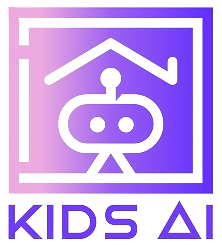
In today’s digital world, it is becoming increasingly important for young minds to be equipped with advanced skills to thrive in an ever-evolving job market. One such skill that is gaining traction is artificial intelligence (AI) education. Machine learning, a subset of AI, is becoming a powerful tool in shaping the minds of young learners, giving them an edge in problem-solving, critical thinking, and creativity.
Machine learning is the science of enabling computers to learn and make decisions without being explicitly programmed. It empowers computers to analyze patterns, identify trends, and make predictions based on vast amounts of data. AI education focuses on teaching students how to harness the power of machine learning to solve complex problems and develop innovative solutions.
One of the significant benefits of AI education is that it enhances problem-solving skills. Machine learning teaches students to think analytically and break down complex problems into smaller, more manageable components. By understanding how machine learning algorithms work, students can apply this knowledge to real-world situations, making them more adept at finding creative solutions.
Another advantage of AI education is its ability to foster critical thinking. Machine learning requires students to evaluate data, assess its reliability, and draw logical conclusions. By engaging in this thought process, students learn to think critically, question assumptions, and analyze information from different perspectives. These skills are invaluable, not only in the field of AI but also in various other disciplines, such as science, mathematics, and even social sciences.
Furthermore, AI education promotes creativity. Machine learning encourages students to explore different approaches to problem-solving and generate innovative ideas. By learning how to feed data into machine learning models and analyze the outputs, students can unlock their creative potential. This creative thinking can be applied to any subject, enabling students to think outside the box and come up with groundbreaking ideas or solutions.
Additionally, AI education helps students understand the ethical implications of AI technology. As AI becomes more prevalent in society, it is crucial that young minds develop an understanding of the ethical considerations that come with it. AI education teaches students about bias, privacy, accountability, and the responsible use of AI. By instilling these ethical values, we can ensure a generation of AI practitioners and users who make informed decisions and develop AI systems that benefit humanity.
The power of AI education lies not only in shaping young minds but also in preparing them for the future workforce. AI is already transforming industries such as healthcare, finance, transportation, and manufacturing. By equipping students with AI skills at a young age, we are preparing them for a job market that demands proficiency in data analysis, machine learning, and AI-driven technologies. This proficiency will give them a competitive advantage and open doors to exciting career opportunities.
In conclusion, AI education is a powerful tool that is shaping the minds of young learners in remarkable ways. By teaching students the intricacies of machine learning, we equip them with problem-solving skills, critical thinking abilities, and creative mindsets. Moreover, AI education instills ethical considerations and prepares students for a future where AI is a crucial part of various industries. As technology continues to advance, embracing AI education becomes imperative for the holistic development of young minds and the success of future generations.



